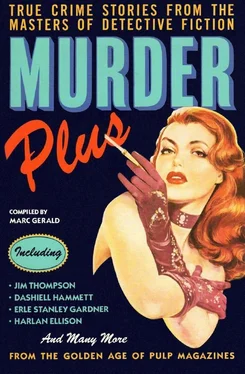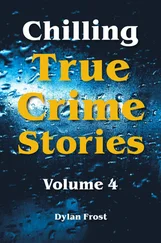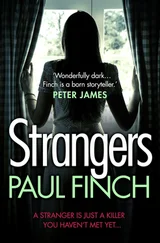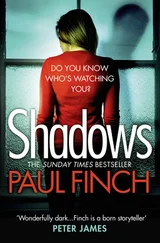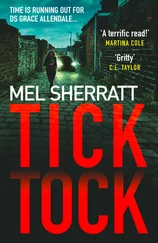Харлан Эллисон - Murder Plus - True Crime Stories From The Masters Of Detective Fiction
Здесь есть возможность читать онлайн «Харлан Эллисон - Murder Plus - True Crime Stories From The Masters Of Detective Fiction» весь текст электронной книги совершенно бесплатно (целиком полную версию без сокращений). В некоторых случаях можно слушать аудио, скачать через торрент в формате fb2 и присутствует краткое содержание. Город: New York, Год выпуска: 1992, ISBN: 1992, Издательство: Pharos Books, Жанр: Детектив, на английском языке. Описание произведения, (предисловие) а так же отзывы посетителей доступны на портале библиотеки ЛибКат.
- Название:Murder Plus: True Crime Stories From The Masters Of Detective Fiction
- Автор:
- Издательство:Pharos Books
- Жанр:
- Год:1992
- Город:New York
- ISBN:978-0-88687-662-3
- Рейтинг книги:4 / 5. Голосов: 1
-
Избранное:Добавить в избранное
- Отзывы:
-
Ваша оценка:
- 80
- 1
- 2
- 3
- 4
- 5
Murder Plus: True Crime Stories From The Masters Of Detective Fiction: краткое содержание, описание и аннотация
Предлагаем к чтению аннотацию, описание, краткое содержание или предисловие (зависит от того, что написал сам автор книги «Murder Plus: True Crime Stories From The Masters Of Detective Fiction»). Если вы не нашли необходимую информацию о книге — напишите в комментариях, мы постараемся отыскать её.
Murder Plus: True Crime Stories From The Masters Of Detective Fiction — читать онлайн бесплатно полную книгу (весь текст) целиком
Ниже представлен текст книги, разбитый по страницам. Система сохранения места последней прочитанной страницы, позволяет с удобством читать онлайн бесплатно книгу «Murder Plus: True Crime Stories From The Masters Of Detective Fiction», без необходимости каждый раз заново искать на чём Вы остановились. Поставьте закладку, и сможете в любой момент перейти на страницу, на которой закончили чтение.
Интервал:
Закладка:
Engleberry must have been watching from the window, for he opened the door before the Chief could ring the bell. He wore a faded bathrobe over his pajamas and slippers on his feet. He was a tall, thin man in his early thirties, with a narrow face and deep-set, brooding eyes.
“I’m Vivian Lahey’s brother-in-law, George Engleberry,” he introduced himself. “My wife is upstairs in the bedroom. Naturally she is terribly upset over the death of her sister. Is it necessary to — ah — bother her now?”
“I’m afraid so,” Herrick said. “But first I’d like some information from you.”
In response to the Chiefs questions, Engleberry revealed that he had come to Marvin Center six years before to take a job as linotype operator with the Marvin Center Press on South and Division streets. A year later he had married Rose Lahey, and had rented this house. Rose’s sister, Vivian, had moved in with them and shared expenses. He and his wife had no children.
“Was Vivian Lahey ever married?” Herrick asked.
“No.”
“I suppose a good-looking girl like she was had quite a few men friends?”
The brother-in-law shrugged. “I guess she did. But she spent most of her time in New York, especially when she was working. She’d stay at a hotel and not come home for days at a time. I guess her dates were mostly New York men and she’d meet them there to go out with them.”
“No man in particular?”
Engleberry glowered. “Vivian liked to run around. I thought I was sort of responsible for her, she being a single girl and living with us, but she never paid any attention to me.”
“What about local men?” the Chief persisted.
“Well, she didn’t bring any to the house.” Engleberry hesitated, then added, “All I know is that she did have a date last night. At least I imagine she did because she left the house at around nine-thirty last night, and wasn’t home when I went to bed.”
“Any idea who she was with?”
“No. She received another phone call before she went out, but she didn’t tell us who called.”
“May I see your wife now?” Herrick asked.
Reluctantly Engleberry led the Chief into a bedroom. Rose Engleberry was lying on one of the twin beds. Like her husband, she wore a robe over her night clothes. At the sight of Herrick, she sat up. She was a plump woman in her early thirties. Her eyes were red with weeping and her hair straggled down her face.
She told Herrick that she didn’t know whom her sister had been out with the previous night. Vivian was rather secretive about her men friends. One thing, however, was certain: The date had been made at the very last minute, when somebody had phoned her after nine, because at seven o’clock Dwight Braun had phoned Vivian and she had told him she was going to spend the evening at home.
“Who’s Dwight Braun?” Herrick asked.
“He was Vivian’s agent,” Mrs. Engleberry said. “George and I didn’t approve of him. Vivian had plenty of talent, but except for a few spots now and then on one of the big networks, the only singing jobs she could get were small stations with bands nobody ever heard of.”
“Then she couldn’t have been making much money?”
Engleberry answered that one. “Very little left after expenses and agent fees and all that. That’s the chief reason she stayed on in Marvin Center with us instead of moving near the studios in New York. It always seemed to me that she could have done better if she hadn’t been tied up with this agent, Dwight Braun. His agency is very small; he hasn’t even got a real office. I told her what she needed was a big-shot agent.
“Well, last week she decided to break off with Braun. Last night at seven he called up and asked if he could come out and see her. I guess he wanted to talk her into staying with him. Vivian said she’d be home, but at about nine-thirty she got that second phone call. She put on her coat and said she’d be right back, and that’s the last we saw of her.”
“Did Braun show up?”
“At around ten, I guess,” Engleberry said. “He waited around for a whole hour and got sore and left. I don’t blame him for being sore. Here he had come all the way from New York and Vivian hadn’t even waited for him.”
“Did you hear her come home? A car pull up or her walking up the driveway or anything like that?”
They shook their heads.
Mrs. Engleberry put her handkerchief up to her eyes and muttered, “Mr. Braun was angry when he left. Vivian might have been coming home just as he left the house and they met outside.”
“Rose!” her husband exclaimed. “Do you realize you’re accusing a man of murder when you know nothing about it?”
She looked at him in surprise. “Why, I said no such thing, George.”
“Another thing,” Herrick injected quietly. “What was Miss Lahey doing around the back of the house? Had she driven a car into the garage?”
“Vivian couldn’t drive,” Engleberry replied. “She came around to the back door because she’d lost her key to the front door. I was planning to have another one made, but I didn’t get around to it.”
The Chief recalled the bit of town gossip his wife had told him. “What about John Shanken?”
There was a brief silence. Engleberry and his wife looked at each other. Then the husband said, “You mean the Shanken who has the men’s store? What about him?”
“George, there’s no sense trying to protect anybody,” Mrs. Engleberry said.
“Vivian’s dead!” he objected angrily. “Why let her name be dragged in the mud?”
“Don’t you want her murderer caught?” Herrick asked softly.
Mrs. Engleberry blew her nose noisily and started to sob. Her husband raged. “Vivian was as fine and decent a girl as you could find. I don’t know who killed her. It could have been a thief or a madman. Did you think of that?”
Herrick excused himself and descended the stairs. Sergeant Sperling was in the hall.
“I think I’ve got something, Chief. Come on outside.”
They left through the back door. Near the corner of the house, beyond the girl’s body and a little to the right of the path, Herrick saw an inverted cardboard box resting in the snow. Tenderly Sperling lifted the box and revealed a footprint in the snow.
“Look at this,” he said excitedly.
Herrick squatted. A foot had crushed through the top layer of ice and pressed down the snow beneath. At the heel of the print there was a ragged smear of blood and another at the instep.
“Somebody made this after Miss Lahey was murdered,” Sperling explained, “after her blood had been spilled on the snow. See how the blood is everywhere else. It lies on top of the ice in globules and it froze that way. But the shoe came down here and spread and pressed the blood. The toe points to the driveway. Here’s part of another print — see this rubber heel? — and then he turned around the corner of the house and walked down the driveway along one of the car ruts. I looked, but I haven’t found another print of a rubber-heeled shoe.”
Herrick nodded. “It’s that rubber heel that interests me more than the blood. With all the snow and ice these last few days, nobody would leave the house without something over his shoes.” He glanced at the dead girl’s feet. “She’s wearing galoshes. So am I. You’re wearing rubber and the milkman wore boots. I’d say that this footprint was made by somebody who went out in a car and didn’t expect to do much walking. Or somebody who came from New York where the snow has been cleared from the streets. Well, it’s a lead.”
Sperling beamed happily. “It’s more than a lead, Chief. It can be evidence. I can make a plaster cast of this footprint. All I need is some talcum powder to shake over it and some fine shellac to spray with a Flit gun. I repeat that a couple of times and then I get some very fine plaster of Paris from a dentist and make a cast. If we can find the shoe, we can take it and the cast to the police laboratory in Brooklyn and have them matched up. It’s as good as a fingerprint.”
Читать дальшеИнтервал:
Закладка:
Похожие книги на «Murder Plus: True Crime Stories From The Masters Of Detective Fiction»
Представляем Вашему вниманию похожие книги на «Murder Plus: True Crime Stories From The Masters Of Detective Fiction» списком для выбора. Мы отобрали схожую по названию и смыслу литературу в надежде предоставить читателям больше вариантов отыскать новые, интересные, ещё непрочитанные произведения.
Обсуждение, отзывы о книге «Murder Plus: True Crime Stories From The Masters Of Detective Fiction» и просто собственные мнения читателей. Оставьте ваши комментарии, напишите, что Вы думаете о произведении, его смысле или главных героях. Укажите что конкретно понравилось, а что нет, и почему Вы так считаете.
